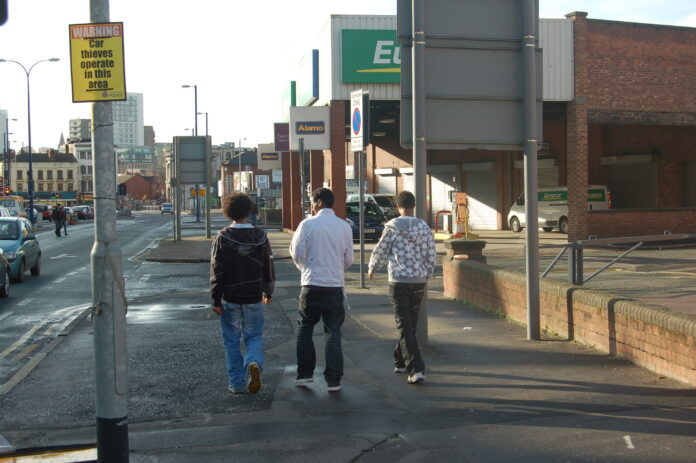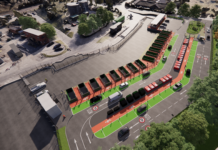In Pendle, this figure reaches 45% – the second highest rate of all local authorities in the country. Oldham, Manchester, Blackburn with Darwen and Hyndburn all join Pendle in the list of the ten council areas with the highest child poverty rates in the UK. The North West features in this list more times than any other region
This new data also shows that the vast majority of constituencies are home to families where one in four children are living in poverty. This could mean families using food banks to feed their children, children going without warm clothes in winter, or living in cold or unsafe housing. For Manchester Rusholme, the picture is even more bleak – with more than half of all children currently living in poverty.
The End Child Poverty Coalition, representing over 135 organisationsacross the UK, is calling on the government to meet its manifesto commitment to address these high levels of child poverty in the North West, and across the rest of country.
Commenting on the figures, Graham Whitham, End Child Poverty Coalition spokesperson and Chief Executive of Resolve Poverty said:
“The new data released today really illustrates the appalling levels of poverty we are seeing in the North West. In an average class of 30 in the region, at least ten children are living in poverty – with this rising to at least 13 in Pendle, Oldham and Manchester. For many this means being excluded from activities like school trips and days out, not having clothes that fit them, going to school hungry, and in some cases sharing a bed or sleeping on the floor.
“No child should go without the things they need to be healthy and happy. The government’s forthcoming national Child Poverty Strategy must demonstrate a clear ambition to ending child poverty in this country, backed by specific targets and immediate investment in social security. This needs to include an urgent commitment to ending the cruel two-child benefit limit – which is currently pulling a further 109 children into poverty each day.
“While we await the publication of the strategy, we really encourage regional and local government to consider their role in reducing and preventing poverty in their areas. The power to enact national policy change may lie with central government, but local authorities have a unique ability to respond to poverty in a way that can address and resolve the specific issues in their areas. This can include developing their own anti-poverty strategies and reviewing how they distribute local welfare assistance, to support residents in a way that is most beneficial to them.”
Rachel Walters, End Child Poverty Coalition Manager added:
“These figures should demonstrate to government just how important it is to quickly address this so to prevent another generation of children from growing up in low-income families. The government’s strategy to tackle child poverty must invest in children in areas with higher levels of poverty, like the North West. As a first step the government must scrap the two-child limit to benefit payments, a policy which continues to pull children into poverty every day.”
A single mother from Trafford supported by Resolve Poverty had been struggling financially after separating from her partner, due to the increased costs of living on her own.
She said: “When you are cold, sick and don’t have money, life is very tough. I was struggling with everything and felt fed up and lost and I did not know who to ask.”
The mum was put in touch with Resolve Poverty’s Money Matters programme by her child’s school. The programme helps people to maximise their income and manage debts.
She said: “Money Matters is very good and provided me with the help and support I needed to find out what benefits I was entitled to. The financial help was very significant to me but it also reduced stress, which improved my mental health.”
CASE STUDY
A single mother from Trafford supported by Resolve Poverty had been struggling financially after separating from her partner, due to the increased costs of living on her own.
She said: “When you are cold, sick and don’t have money, life is very tough. I was struggling with everything and felt fed up and lost and I did not know who to ask.”
The mum was put in touch with Resolve Poverty’s Money Matters programme by her child’s school. The programme helps people to maximise their income and manage debts.
She said: “Money Matters is very good and provided me with the help and support I needed to find out what benefits I was entitled to. The financial help was very significant to me but it also reduced stress, which improved my mental health.”







